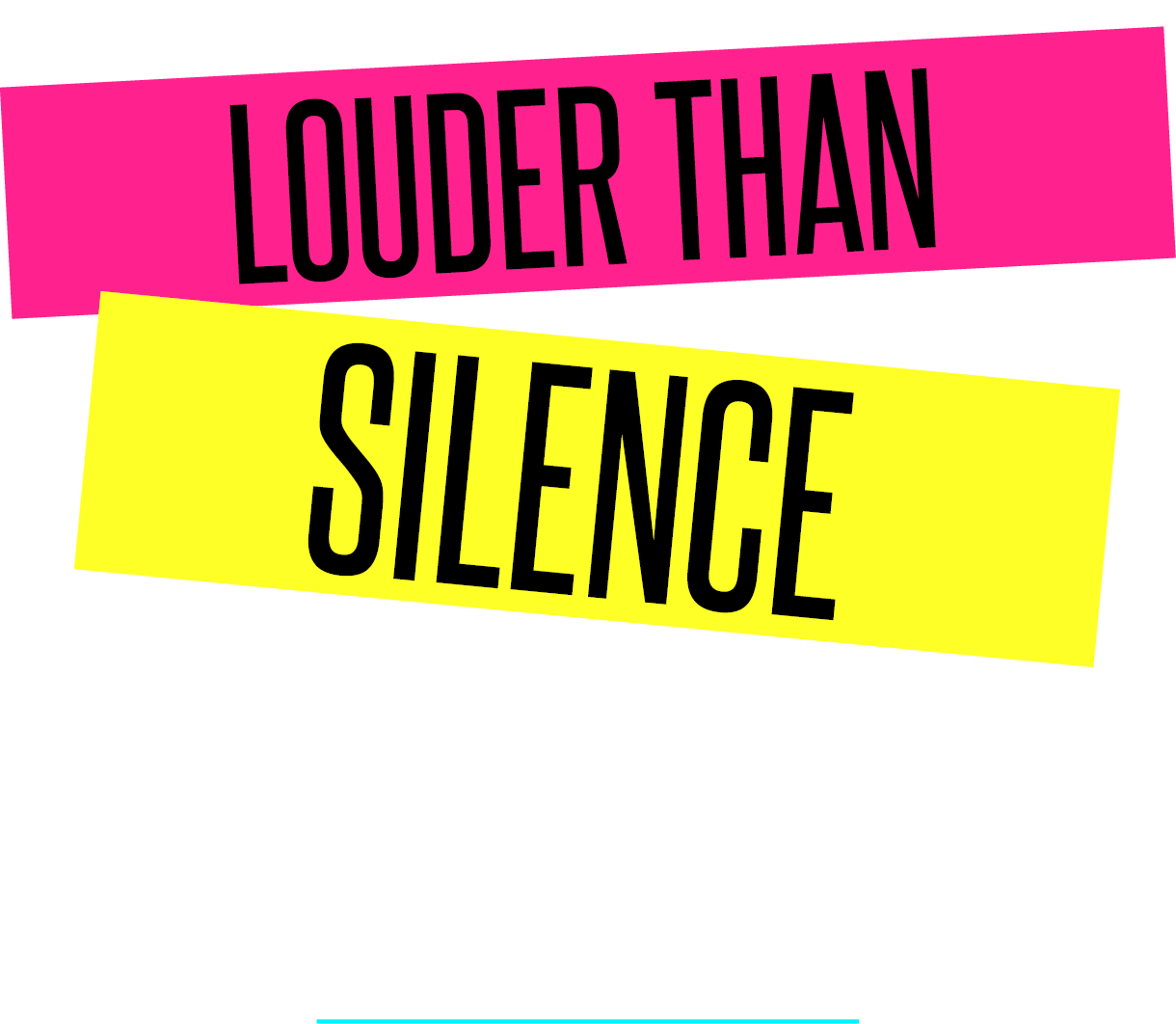

Lori Poland
EndCAN Co-Founder &
Executive Director
Episode 1: One Single Story Among Millions
Welcome to the Louder than Silence Podcast. In this first episode, Lori Poland begins to tell her story of surviving a high-profile kidnapping case at the age of three years old.
Episode Transcript
Transcript of the Louder than Silence Podcast
Episode #1: One Single Story Among Millions
Transcribed by Adam Soisson
[Inspirational theme music plays.]
>> Lori: Thank you for joining us. In this podcast, we are real people, talking about real things. Child abuse and neglect: a topic that is all too often left in the shadows of silence, leaving survivors alone, fearful, and often times without a voice. We’re having conversations to become louder than silence. It is here, where we will invite you to join us and be the change needed to end child abuse and neglect.
>>Lori Hi everybody, thanks so much for joining. My name is Lori Poland and I am the Executive Director of the National Foundation to End Child Abuse and Neglect. This is our first podcast and I am actually gonna be starting out our podcast series with telling you how I got into the seat that I’m in and where I’m at today.
So my story is just one single story among millions and millions of stories and many of you out there can either relate, have something to understand and engage with and I completely get that. So I invite you to Be the Change, Be Louder than Silence, and join us in uniting our voices so that collectively we can all work together to end this pretty atrocious issue.
So my story started in 1983 when I was a little girl playing in my front yard. My dad was home, he took the day off of work to paint our house and my brother and I had suckered him into giving us a second popsicle after my mom went back to work after her lunch break. While he was inside getting us popsicles this car just drove around the corner and the passenger door was open and he leaned over and asked if I liked candy and like any sugar-loving three year old I eagerly said yes and he told me that if I went with him he would give me candy so I quickly hopped on that opportunity and got in the car with him. Before I knew it we were gone. Before my dad, before my brother, before anybody knew it, right in the middle of the day at 12:35 in the afternoon I was adducted from my front yard. My kidnapper took me to the mountains and he found an abandoned outhouse that had been left alone for a number of years. He proceeded to severely abuse me and do a lot of pretty horrific things to me before he lifted me and put me fifteen feet below ground in the pit of the outhouse toilet in the men’s portion of the bathroom there. And then he left, and he just left me there to die.
So I spent nearly 4 days, three and a half days in the bottom of a toilet, begging and crying for my mom to come. I have a couple of memories, one memory was I had just gotten potty trained a couple weeks before this and I was so proud of myself for having been potty trained and I had to go to the bathroom when I was in the outhouse and I was worried that I was going to let my mom down, that she was going to be upset with me because I had worked so hard at mastering going to the bathroom. That’s a tough memory to hang on to. Another memory that I have is when they found me. So, bird watchers on the fourth day, happened to be driving by the outhouse that I was in and I they were driving they saw the outhouse that I was in and the husband said, “absolutely not, we’re going to keep driving and we’ll find another one.” They went about a mile up the road and the wife told the husband, “you need to turn around, I have to go to the bathroom” and so like any good husband, or any good spouse I suppose right, he listened and turned around. While they were using the facilities they heard a cry and they started looking around and eventually they looked down and they saw me and they said, “what are you doing here?” And I told them that I lived there, and to me that just speaks to the resilience of children and how quickly we adapt to whatever environment we’re in. I’m a pretty adaptable human being trying to do the best that I can to survive in this wild world.
Nonetheless it took a while for them to get me out of the hole because it was such a small entry point and it was a really narrow hole. They found a volunteer firefighter up in Evergreen and he came down with a harness and he looked at me and he said, “hold on” and I remember that, that is the other memory that I have. So I was rushed to the hospital and reunited with my family and our story really just began there. You know, I mean, after going through something like that and trying to go back to what one would guess would be a normal existence was pretty hard, I mean my parents did everything they possibly could to provide me with “a normal life.” You know, our life was far from normal. You can’t go through something like that and just get over it. I certainly had way more normal days than I did bad days but the bad days were bad and the dark days were dark and the unfortunate part of going through something like my story was it impacted everyone. Everyone. It affected my entire family, my brother, my parents, my grandparents, my aunts, my uncles, my cousins; our friends, our neighbors, everything. The entire community, the country. I have letters from people abroad. It affected everything, and everything I’ve ever touched it’s just impacted. It’s kind of like poison. I can’t erase it, there are so many days when I wish I could undo that yes and say no. I’m very much of a yes woman. To this day I still struggle with saying no so the irony of that is pretty interesting to me. But I learned at a very young age that I needed to shine because there were so many people around me who were hurting and who my kidnapping truly negatively impacted in such a traumatic and hard way. The last thing I wanted to do was cause any more harm. I genuinely felt like I hurt all of them, every one of them. I’ve carried that responsibility now for nearly 38 years and it’s been a long journey of feeling responsible and not wanting anyone to suffer or hurt the way that I have or the way that I’ve seen.
So I learned how to shine, I learned to smile and make everybody else happy and please them and make sure that people felt like they mattered because at the end of the day every single human being simply wants to matter. I knew that if I was going to do something like that I was going to do everything I possibly could to be the change and to help people and to give back. Because I just don’t think you can go through something like that and just move on with life and move on with life and not be some semblance of good for the world. I certainly wasn’t interested in trying to cause more harm. So I’ve spent the majority of my life trying to do that. Every time I saw someone suffering or in pain, even as a little girl in school I saw it as my job to let them know they were okay and that they belonged and that I could see them. Ultimately, I treated everybody the way that I wish people would’ve treated me. What I also learned was that I was really alone in a lot of it. My aloneness was how I protected myself. I learned how to be rigidly self-sufficient so that I could A) never count on anybody to keep me safe but myself and B) so that other people thought and knew that I was okay because if I wasn’t there caused a lot more harm and guilt and shame and whatever. I just didn’t want to do that to anybody, I didn’t want to cause any more harm. As I aged I knew probably around the age of eight that I wanted to become a therapist and I wanted to help people heal, I wanted to help people feel, like I said, that they mattered and I wanted to open a camp for people to attend where they could experience love and connection and true understanding of one another so I worked at doing that.
In high school I started a lunch alone thing where I would go find people who were eating lunch alone in the hallways and have lunch with them because I knew how alone I felt even though I was friends with everybody I never really belonged anywhere because I wasn’t going to let myself belong anywhere because any time I ever tried to belong or wanted somebody to help me belong I experienced pretty significant abandonment and I don’t like that feeling. Even as a 39 year old adult woman I still have that feeling and I still protect myself with that same strategies that I learned at the age of three in truly a fight-or-flight experience.
After my kidnapping I had gone to this place called the Kempe Center and back then they provided services for people that had been abused. There was a psychiatrist, his name was David Jones and the director of the Kempe Center’s name is Dr. Richard Krugman. I went there for my forensic interview where David interviewed me with an earbud in his ear, being asked questions from the prosecutor and the defense attorney behind a two-way mirror while Dick Krugman videotaped these interviews. There were five of them and I re-enacted and re-played out my experience and my trauma as well as was able to identify on a number of occasions my abductor, both in a lineup as well as some photographs that David brought in to the room there at the Kempe Center. David was really a huge inspiration as to why I wanted to become a therapist and Dr. Krugman and I stayed in contact throughout my whole life and when I was a senior in high school I was doing a term paper for an AP class I was in. I wanted to do what’s now called telehealth for people who lived in rural communities where they could get treatment like I had gotten from David and Dr. Krugman. So I was writing this paper and I had 18 questions and I went and saw Dr. Krugman for the first time since, I was four when I last saw him, four or five and at the end of our interview with him I had told him, “you know my mom and dad said that you saved my life and I just wanted to thank you.”
I know that that meant the world to him so Dr. Krugman and I stayed in contact and a few years ago we decided that we were going to work together to start the National Foundation to End Child Abuse & Neglect because we know that it’s possible to end child abuse and neglect when we eliminate shame and bring voices to everybody that’s experienced any sort of impact around child abuse and neglect, whether they themselves were abused or their parents were abused and they were raised by trauma survivors. We decided we were going to do that so this is what we are doing, it’s endcan.org is our website and we’re uniting voices and our mission is to end child abuse and neglect in our lifetime. I want to thank all of you for joining us today, my name is Lori Poland. Thank you so much for listening to my story and how I got here. I am the Executive Director of the National Foundation to End Child Abuse and Neglect and I appreciate it. Have a great day.
[Inspirational theme music plays.]
>>Lori: I want to thank each of you again for joining us today and listening in. If you or someone you know is being abused, please call 1-800-4-A-CHILD. To learn more about EndCAN, visit www.endcan.org or find us on all social media platforms. Join us in being Louder than Silence and being a part of the change. Please leave a comment, like our podcast, or share with your friends. The more the word spreads, the more of a collective impact we can have. If you have a question or you know someone who would want to be a guest on our podcast, please contact bethechange@endcan.org. Thanks again, and have a great day.
<END>


